
According to bike theft statistics compiled by Project 529, over two million bikes are stolen in North America every year. Bike theft is a very profitable crime with minimal risk. Trends show that bike theft rates have doubled in the past twenty years.
It is a source of endless frustration to riders and law enforcement alike because of how hard it is to hold thieves accountable and get bikes back to their owners. But there is a lot that can be done before a theft and after to help get your most prized possession back in the right hands.
In communities like Spokane, Washington, the bike community has mobilized to help each other and it may inspire other communities to do the same. Below these inspiring stories, we have a few uncommon tips you might have not heard before.
How a bike community mobilized to help recover stolen bikes
In July of 2020 Sara Barber moved from Michigan to Spokane, Washington, for college. Only a few months later, heading to a quick hour-long class, she locked her beloved mountain bike in her car, parked beneath a campus security camera.
Unfortunately, by the time Barber returned from class, someone had taken a crowbar to her car and smashed out a window. Her bike was gone.
New in town, Barber wasn’t quite sure what to do. She posted in local mountain biking Facebook groups asking for people to keep an eye out for her stolen bike. She was driving her windowless car in cold, winter weather for over a week before she could get it fixed. She didn’t have the money to get a new bike.
Then a month later, a stranger called her on Facebook Messenger. Barber was hesitant but finally answered a call from Shae Blackwell: “Hey, I was walking my dog…and I think I found your bike locked up outside an apartment building downtown.”
Barber described what happened next with immense gratitude and a fair dose of awe. Blackwell waited by the locked bike until Barber arrived. She also called in local bike vigilante Randy Staat to help recover the bike. Once they had confirmed that the bike belonged to Barber, Staat used his own U-lock to secure the bike while the group waited for the police to arrive.
As the police were chopping the first lock off Barber’s bike, the alleged thief came outside. Though other tenants at the apartment building said they had seen the bike around for about a month, the alleged thief said he had bought the bike from a thrift store a few days ago. The police were unable to press charges. This was frustrating, but Barber was still stoked to have her bike back.
After speaking with Barber, I wanted to know more about these members of our local community who had gone to such lengths to help a stranger regain her bike. Luckily, they both kindly agreed to interviews.
The Catalyst for a bike theft awareness campaign
Shae Blackwell is a legislative aide to a member of the Spokane City Council. She became interested in stolen bike recovery after her boyfriend’s eye-catching, glacier green Giant Fathom was targeted and stolen from a locked, supposedly secure storage room under video surveillance. Even though the thieves were caught on video, the footage wasn’t clear enough to find or prosecute them.
Then one summer evening downtown, Blackwell saw a man ride by on a unique glacier green Giant. She started following him, letting her boyfriend know to meet her and that she thought she had found his bike. Eventually the guy stopped and yelled, “Why are you following me?”
After Blackwell explained the situation, the man said he had bought the bike from Facebook Marketplace. Luckily, after the theft Blackwell’s boyfriend had reported the bike’s serial number stolen on Bike Index so they were able to prove that the bike was her boyfriend’s stolen property and recover the bike.
This whole situation really drove home for Blackwell how violating having your bike stolen feels. She is hoping to roll out a bike theft awareness and prevention campaign in Spring of 2024 to give people a “heads up instead of a heartache.”
As Blackwell pointed out, in recent years Spokane has invested a fair amount of resources in creating more bike-friendly infrastructure, especially downtown. She stated that if they want people to actually be able to make use of that infrastructure safely, they have to back that up by also providing more secure bike storage options. She mentioned measures including:
- Encouraging visitors to the city to take bike theft prevention precautions (for example, not leaving a bike unlocked on their car rack outside a restaurant while they eat).
- Providing U-locks to local businesses that they could make available to customers to lock up their bikes.
- Educating local businesses such as hotels on the risks of bike theft and encouraging them to allow bikes to be brought inside.
Blackwell spoke highly of local bike recovery vigilante Randy Staat’s efforts to reunite riders with their stolen bicycles.
Retrieve at your own risk
Staat started actively recovering stolen bikes after his own bike was stolen eight years ago and a park ranger helped him recover it. Since then he has recovered approximately 25 bikes with a total value of over $30,000. He found most of the stolen bikes on Facebook Marketplace but has also recovered bikes from sales sites such as OfferUp, LetGo and Craigslist.
Staat’s first piece of advice after an owner discovers their bike is gone is to start searching online. “I would tell people to be vigilant and check For Sale sites immediately and every day.”
He also warned, “If they find their bike, don’t go alone. Request the help of the local authorities. I stopped going by myself after being bear maced and chased down in a truck where the thief was trying everything he could to violently harm me.”
After Staat was maced, he attempted to follow the bike thief while calling the cops but the thief tried to break the windows out of his car and run him off the road. As Staat dryly summed it up, “I didn’t recover that bike.”
Which bike registry should you use?
So how do we best protect our bikes in case of theft? The most important thing I have learned through a month’s worth of research and multiple interviews is the importance of registering your bike’s serial number. Bike Index and Project 529 Garage are the two leading online bike registration systems. Both are free and relatively easy to use. So I wondered, which one should I use?
Bicycle Security Advisors, a bike advocacy group had the same question. They compiled a comprehensive graphic comparing the two registries on factors ranging from code and platform to number of stolen bikes recovered. Their consensus was that Bike Index was the better registry option. For example, in May of 2017, the King County Sheriff’s Office in Washington reported that 65% of recovered stolen bikes they had returned to their owners was thanks to Bike Index and that zero had been returned through 529 Garage.
Though it may depend on regionality and I would like to add the caveat that BSA appears to be based in the United States. The Vancouver, BC Police Department uses 529 Garage, as do several other BC police departments. So perhaps in Canada or different regions of the US, this comparison may shake out differently.
If you missed the massive story on how Bike Index investigated the huge swaths of high end mountain bikes making their way to Mexico, check it out here.
How to navigate an insurance claim for bike theft
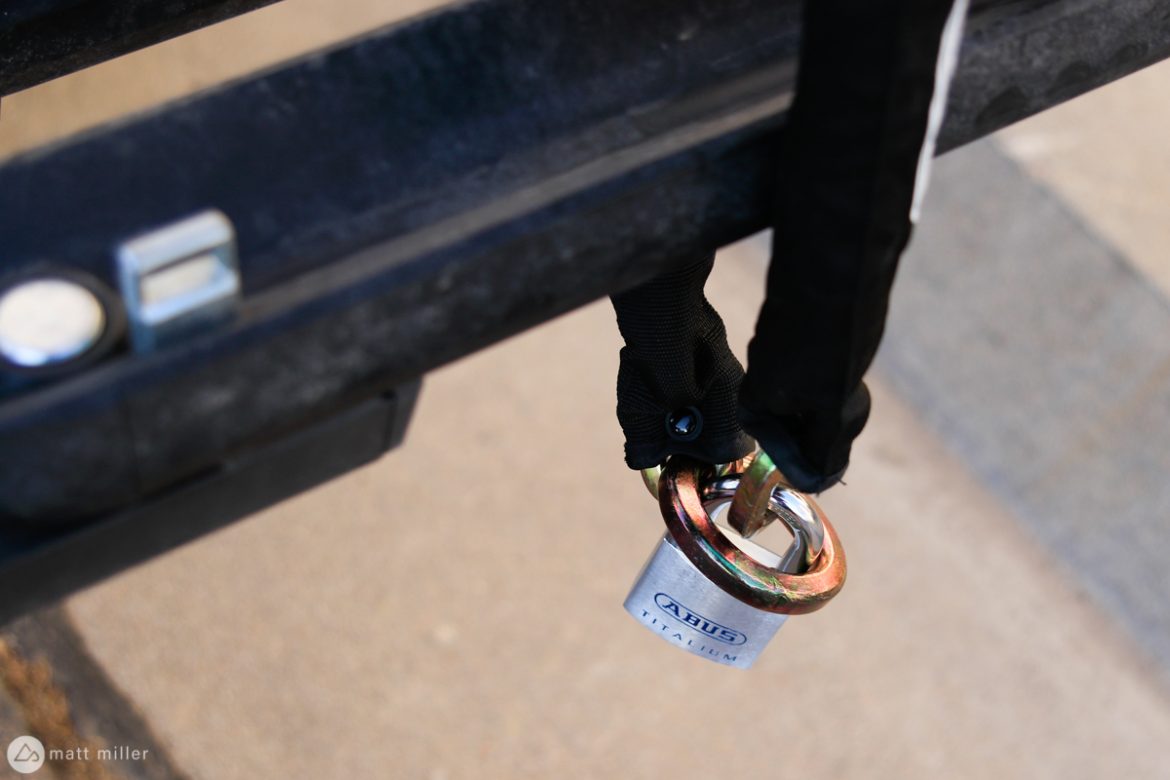
Even with the best lock and your bike registered, no bike is invulnerable. A locked bike in a busy grocery store can still be picked up and carried to someone’s truck bed to have the lock cut off with an angle grinder later.
So how do you insure your bike in case it is stolen? Obviously, speaking with your insurance agent about your individual policy will be most helpful, but here are some key considerations:
- What is your deductible?
- What is your bike’s value?
- What would the premium be to schedule your bike?
Many homeowners and renters policies will cover a stolen bike. However, that means you will have to cover your deductible first. For example, let’s say you have an $8,000 deductible and your stolen bike cost $4,000. Even if you file a claim, you won’t be getting any money to replace your stolen property.
If you “schedule” your bike (in plain terms, buy specific extra coverage), the bike is covered for its full price with a $0 deductible. If you can document the cost of any upgraded components you’ve added to your bike, you can add that to the insured value as well.
What about e-bikes?
If you have an e-bike, you will want to make sure you have a conversation with your insurance agent on how to properly insure your property. Most agents recommend motorized coverage similar to how motorcycles or mopeds are insured. (Don’t take offense, e-bikers).
What if I’ve been reimbursed for my stolen bike and someone found it?
Once the insurance company has paid a claim, the property they paid for or replaced becomes their property. They have the right to salvage.
An agent who wishes to remain anonymous due to a no press clause told me, “If your bike is recovered after the loss has already been settled, say by the police or a pawn shop, reach out to your insurance agent and let them know. Owner-retained salvage is an option. Honestly, for most of the people in my office, it’s way easier for us to just sell it back to the owner. Especially if you’ve already had part of the bike’s value eaten by your deductible. I’ll say, hey, for $500 you can keep it.”
Is it worth filing a police report for a stolen bike?

Anecdotally, the consensus of many riders is that police departments aren’t able to allocate much time and resources to recovering stolen property. A question I was asked several times was, “Is it even worth filing a police report?”
Sharon Lind worked in the evidence department for the police department in Coeur d’Alene, Idaho for 12 years. She provided some insight into the behind the scenes of recovered stolen property and why, YES, it is valuable to file a police report.
“We would get bicycles checked in that were considered ‘abandoned.’ These would eventually be sent to auction if no one claimed them. Some of these bikes were nice and I knew they had been stolen.”
Lind could search serial numbers in the police department’s database. If a police report had been filed that included the serial number, it was easy for her to return the bike to its rightful owner.
Idaho state law requires that unclaimed stolen property such as bikes go to auction after a certain time. Lind says they weren’t able to donate the bikes, for example. It was frustrating to watch someone’s nice bike auctioned off because the state had no way to find the owner.
The evidence department worked hard to try and reunite people with their property. As an avid cyclist herself, Lind would even call up the local bike shop that carried a certain brand and ask if they would run a serial number to see if the bike was sold there. Sometimes she was able to find the owner of an abandoned bike this way. However, she stressed that a filed police report was the most efficient way to reunite riders with their stolen property.
An ounce of prevention
At the end of the day an ounce of prevention is worth a pound of cure. So I’ll close with some reminders:
- Make sure you have your bike’s serial number and good pictures of your bike.
- Don’t leave your bike locked in your car.
- Don’t depend on foot traffic or security cameras to protect your bike.
- Your bike lock is only as good as how it’s secured and what it’s secured to, so make sure the lock is securing the bike frame to something immovable.
- Cable locks are crap. Over half of stolen bikes in North America relied only on a cable lock.



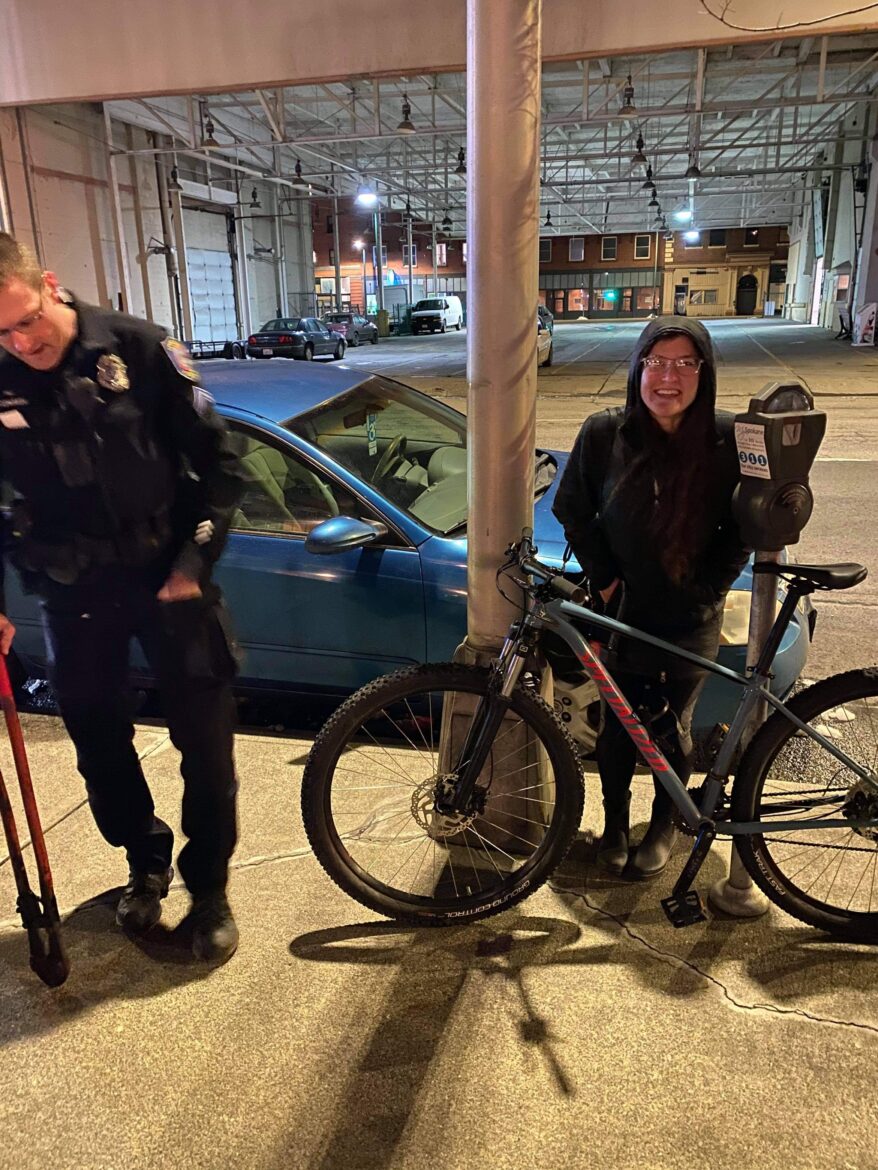


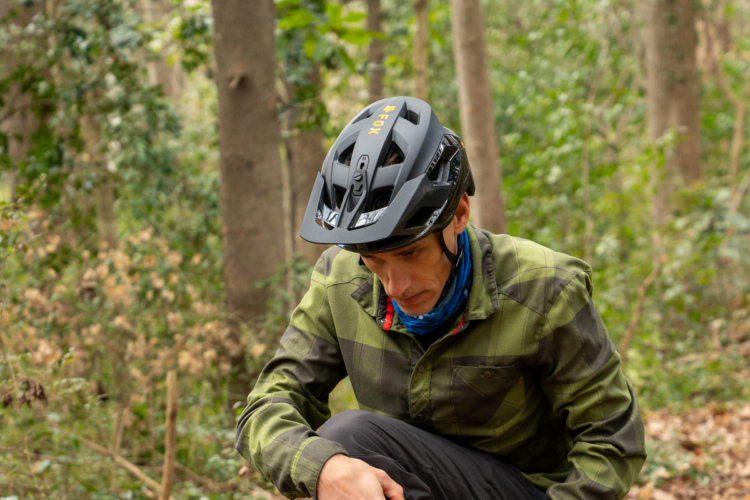
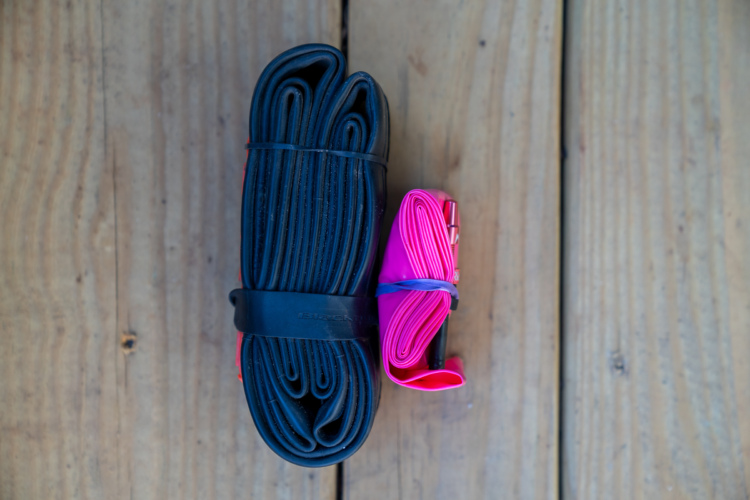

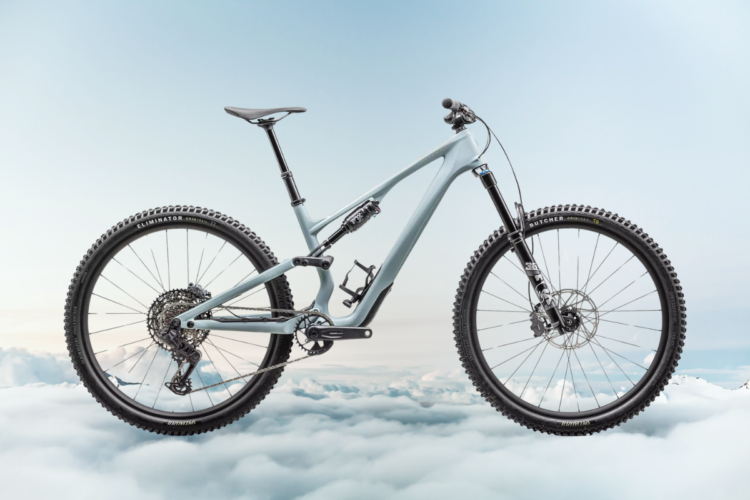

4 Comments
Mar 30, 2023
Mar 30, 2023
May 26, 2023
In my case, I reported mine stolen, with detailed description. Police said they didn't have it. Third time I checked with them, they said why don't you come down and look in our garage. I did and there it sat. Good thing I didn't rely on their checking.
Apr 2, 2023